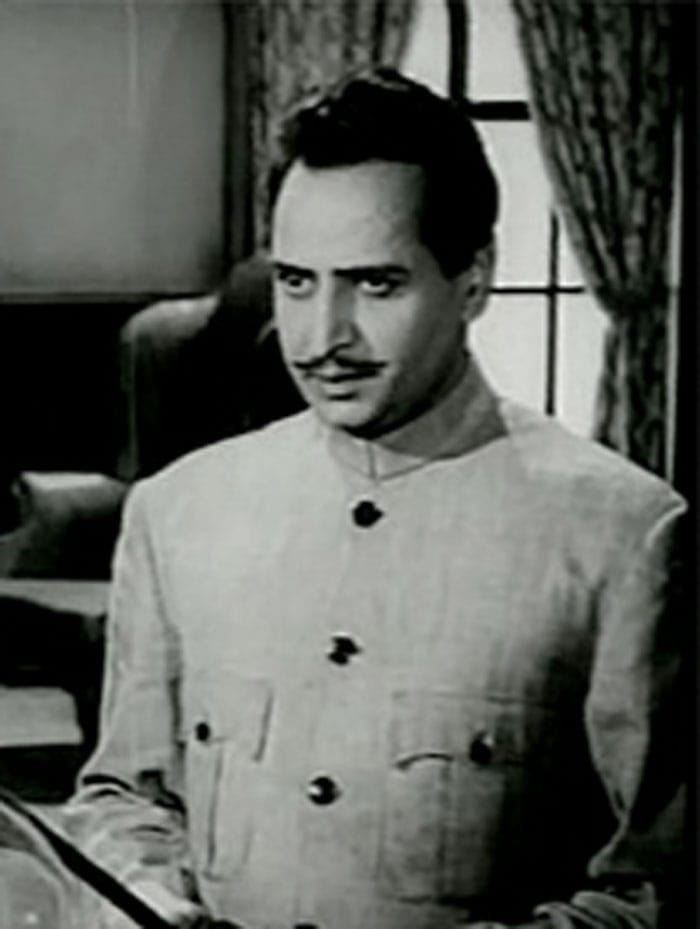On 13 July, 2013, a huge crowd gathered at the Shivaji Park Crematorium in Central Mumbai to bid adieu to Pran Sahaab. His last rites were being performed here.
Pran Kishan Sikand, who was born in Delhi on 12 February, 1920, breathed his last on 12 July, 2013, at the Lilavati Hospital, Mumbai. His body left the Lilavati Hospital in Bandra, a western suburb of Mumbai, at 10.30 am on 13 July, 2013. It reached the crematorium at Shivaji Park half an hour later.
Pran was an exemplary actor, a thorough professional by his own right and a gentleman in every respect. He had a prolific career spanning 6 decades in the industry.
According to, the famed director, Subhash Ghai, Pran Sahaab had completed his journey gracefully, with dignity, accomplishment and achievements with the best of honours – he received the Dadasaheb Phalke Award for Lifetime Achievement in 2012.
Pran was in control of his craft. He brought different shades to his roles as villain. He made the art of villainy his very own and did carve a niche for himself. His portrayal of Gajendra, the tyrannical brother-in-law to Dilip Kumar’s hero in Ram aur Shyam, catapaulted villainy to the focal point of Indian cinema.
An actor par excellence, Pran was the highest paid actor in Bollywood from 1969 to 1982. During this period he was paid more than the heroes of some of the films he acted in. Pran appeared in every super hit film of the time.
Vyjyanthimala reminisced, Pran Sahaab was multi faceted and very talented. He could sing, dance, do comedy , in fact do anything. Though villainy was his trademark, he never overacted. He was a matured villain. Pran was courteous and, says Vyjyanthimala, a wonderful person. She says, “ He will always remain one of the biggest icons of the Hindi film industry.''
As Hindi cinema rolled through the 70’s and into the 80’s the definition, the style, the manner and representation of villains went through a gradual metamorphosis. Pran also transformed himself in the process.
Pran was a versatile actor. His performance in Manoj Kumar’s Upkar, Raj Kapur’s Aah, Gulzar’s Parichay and Prakash Mehra’s Zanjeer amply prove his acting prowess.
Subhash Ghai recalls, Pran would arrive before the call sheet time during the shoots. He would definitely bring something to the table about the scene he was going to shoot that day. Pran had the ability to accept rejection. He used to take it gracefully in his stride saying “You are the captain of the ship.” Thereafter they would share a good laugh over it. Pran was a delight to work with for every director. He was generous to his producers too.
He was neither ostentatious nor was he ever obtrusive and never let fame dictate his behavior. Ghai remembers, every time he narrated a story, Pran would listen, smile and react as if he was a new comer, begging for a good role. This was in spite of the fact that at the time Pran was a huge star and films were bought and released on his name. “His face was bigger on the posters than Amitabh Bachhan”, says Ghai.
In early 1960, Pran played a real hero to Waheeda Rehman. They were attending a party in Chennai. Some of the revelers got inebriated and tried to misbehave with Waheeda Rehman. Pran, reportedly, came to the starlet’s rescue.
Pran had a great sense of humor. He was well read and had keen interest in Urdu poetry and literature. An avid sports lover, he kept abreast of all sports events. He would often be at the Cooperage to watch soccer matches.
Kapil Dev, the cricket legend, said – “If I had a son I would have named him Pran.” In 1980, Kapil had to undergo a knee surgery. He was having problem arranging the money. The Indian Cricket Board was cash strapped those days. Kapil received an unexpected call from Pran, who told him that he would bear the entire expenses for the surgery. "Don’t worry about anything. Just don’t compromise on your health,” Pran had said. Kapil Dev was touched by that call. Eventually Kapil tided over the impasse with help from the Indian cricket board and his family. But the care and concern for sports expressed by Pran remain etched in Kapil’s heart.
Amitabh Bachhan, in his blog,
paid glowing tribute to this legendary actor.
“A gentleman of the finest order, an admirable colleague, a thorough
professional, a master of disguise in the characters he played, a delightful
companion after office hours and a considerate human” – is how he describes
Pran.
In his early days, Pran wanted to become a
photographer. He started assisting a professional photographer in Simla. His first film was Dalsukh M Pancholi's Yamla Jat in Punjabi. It happened from an accidental meeting with writer Wali Mahmood Wali in Lahore in 1940.
When he came to Mumbai, after Partition, Sadat Hussein Manto, the famed litterateur, along with the actor, Shyam helped Pran get
a role in Ziddi (1948), a Bombay Talkies film, directed by Shaheed Latif. It starred Dev Anand and Kamini Kaushal. Thereafter Pran
did not have to look back.
As the legendary actor moves on to his heavenly abode we have respect and admiration for the villain who had a big heart. Our hearts echo the words of Amitabh Bachhan on Pran - “we
don’t make the likes of them anymore.”


